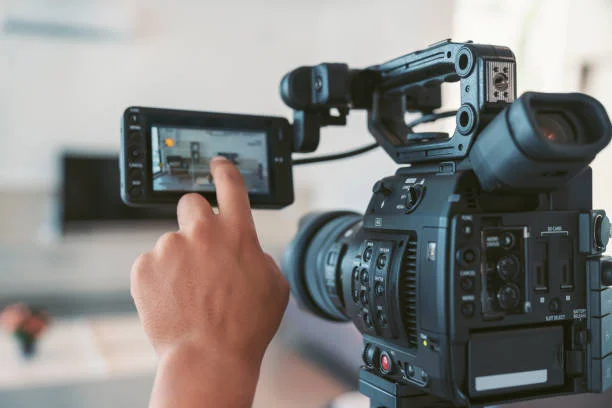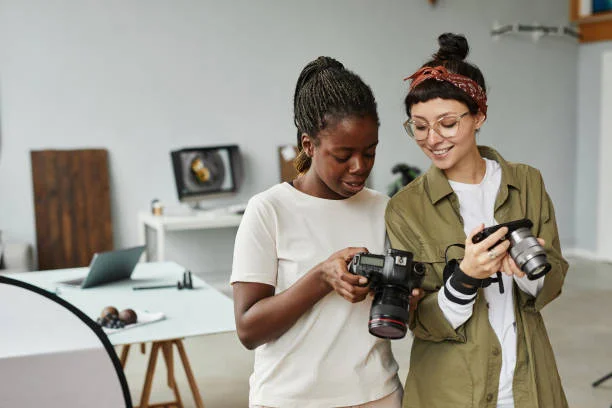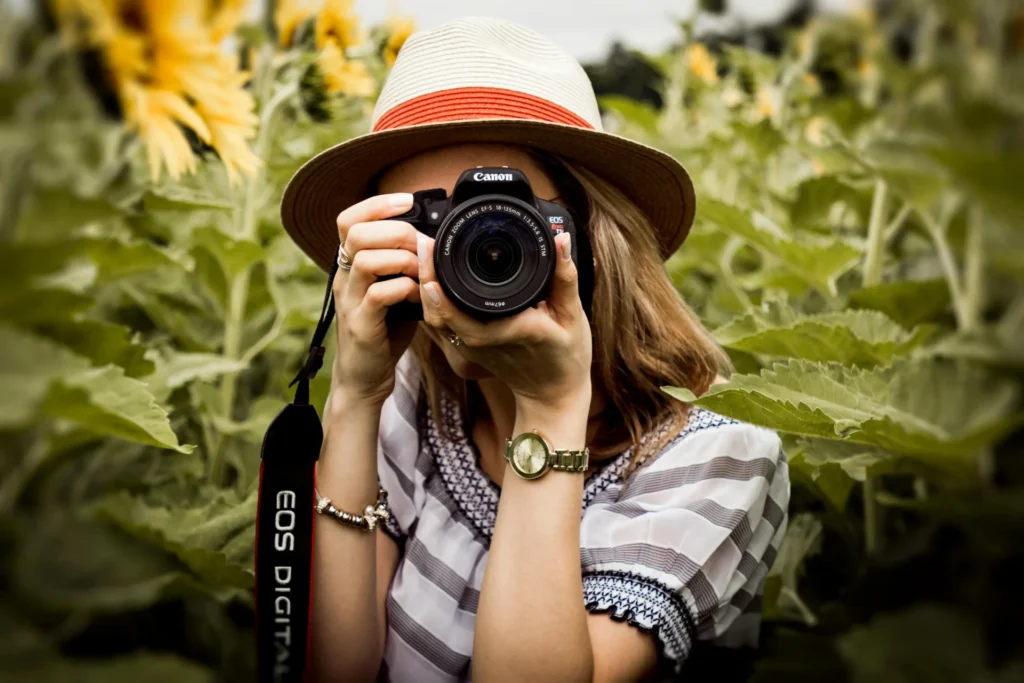If you’re thinking about starting a photography business but feeling a bit overwhelmed because you don’t have any experience? I’ve been there, and I know exactly what it’s like to hold a camera and wonder how on earth you can turn your passion into a thriving business. The good news? You absolutely can, even if you’re starting from scratch. I did it, and I’m here to guide you on how to start a photography business.
Photography is more than just snapping pictures—it’s about capturing moments, telling stories, and, yes, making people smile (sometimes even laugh). If you’re passionate about creating and have a good eye for details, this industry can be incredibly rewarding and fulfilling. I know firsthand how daunting it can seem to leap, especially when every click of the shutter feels like it needs to be perfect. But trust me, you don’t need years of experience or expensive gear to get started. What you need is a little bit of courage, a willingness to learn, and, of course, this guide to help you along the way.
Understanding the Basics of Photography

Alright, before we jump into the nitty-gritty of building a photography business, let’s take a step back and understand what photography really is. When I started, I used to think photography was just about pressing a button and hoping for the best. It turns out there’s so much more to it—but don’t worry, it’s not as complicated as it seems.
Types of Photography to Consider
Now, one of the most exciting things about photography is the sheer variety of styles and niches you can explore. When I was starting, I dabbled in everything to figure out what clicked (pun intended) with me. Here are some types to think about, and I’ll share a few thoughts on each from my own journey:
- Portrait Photography – If you enjoy connecting with people and capturing their personalities, this might be your thing. I found portrait photography rewarding because every shoot felt personal and meaningful.
- Landscape Photography – Do you love exploring nature or capturing cityscapes? Then this is a great option. I’ll admit, that waking up before sunrise to capture that perfect light wasn’t always fun, but the results made it all worth it.
- Event Photography – Weddings, parties, corporate functions…there’s always something happening. Event photography kept me on my toes, but it also taught me how to be quick, adaptable, and ready for anything.
- Product Photography – If you prefer working in a controlled environment, product photography might suit you. I enjoyed creating the perfect setup with lighting and props, and it felt like putting together a puzzle.
- Wildlife Photography – This one’s for the patient adventurers! Capturing animals in their natural habitats is thrilling, but you have to be ready for lots of waiting and quick movements when the moment strikes.
- Street Photography – Candid moments and everyday life—street photography taught me to see beauty in the mundane. Walking around with a camera and capturing spontaneous scenes was both exhilarating and eye-opening.
- Food Photography – Love food? Great! I once tried this and realized it’s an art form to make dishes look as delicious in pictures as they taste in real life.
How To Start A Photography Business Step By Step

1- Finding Your Passion and Niche
When I first started exploring photography, I tried everything—from landscapes to portraits—before finding my groove. To identify your preferred photography style, pay attention to what makes you feel most excited when you’re shooting. Do you enjoy capturing people’s emotions, creating dramatic scenes, or focusing on small details? Try out different genres and listen to your gut. Here’s a tip that worked for me: look back through your favorite shots and notice any patterns—they can point you toward what truly makes you tick.
Niche Markets You Can Target
- Family & Maternity Photography – Everyone loves capturing life milestones.
- Real Estate Photography – High demand for quality photos to sell properties.
- Pet Photography – Pet owners love adorable keepsakes of their furry friends.
- Travel Photography – Perfect if you love to explore and document your journeys.
- Commercial & Branding Photography – Helping businesses showcase their products and services.
- Social Media Content Creation – A growing market for influencers and businesses.
Extra Tip: Keep an eye on market trends. What’s popular today might be different tomorrow, so stay adaptable and be willing to pivot if new opportunities arise.
2- Building Your Photography Skills
When it comes to developing your photography skills, it’s all about consistent learning and practice. Even without formal training, there are tons of resources available to help you improve quickly.
Learning Photography: Online Courses, Workshops, and Tutorials
One of the best ways to kickstart your learning journey is through online courses and tutorials. Websites like Skillshare, Coursera, and YouTube offer countless free and paid classes taught by experienced photographers.
You’ll find everything from basic camera settings to advanced editing techniques. I’ve also found workshops to be incredibly valuable since you get hands-on experience and direct feedback from professionals. Learning from others speeds up your growth and helps you avoid common mistakes.
You don’t need a $5,000 camera to practice photography—seriously. Some of my best learning moments came from using my smartphone or a basic DSLR.
Focus on composition, lighting, and capturing emotions instead of worrying about having the latest gear. Experiment with natural light, play around with angles, and challenge yourself with what you have. This makes you a better photographer when you eventually upgrade your equipment.
3- Essential Gear You Need to Get Started
When you’re just starting out in photography, figuring out what gear to invest in can be overwhelming, but it doesn’t have to be. When I began, I kept it simple and focused on getting a reliable, entry-level DSLR or mirrorless camera. For lenses, start with a versatile zoom lens or a “nifty fifty” 50mm prime lens—great for portraits and low-light shots. You don’t need to go all-out on expensive equipment; instead, focus on mastering what you have. As for accessories, here are some basics to consider:
- Tripod – Essential for stable shots, especially in low-light settings or long exposures.
- Memory Cards and Extra Batteries – Trust me, nothing’s worse than running out of storage or power mid-shoot.
- Editing Software – Tools like Adobe Lightroom or free options like Snapseed can take your images to the next level.
Renting vs. Buying Gear: Pros and Cons
Buying your own gear is a great investment if you’re serious and plan to use it often, but it can be pricey. Renting gear, on the other hand, is a good way to test out cameras, lenses, or specialty items before committing. I often rented high-end lenses for special shoots early in my career and saved a lot of money while expanding my skills.
Extra Tip: Start small and gradually add gear as you build your skills and client base. You don’t need everything at once; let your needs guide your purchases!
Extra Tip: Start small and gradually add gear as you build your skills and client base. You don’t need everything at once; let your needs guide your purchases!
4- Setting Up a Budget-Friendly Photography Studio
Setting up a photography studio doesn’t have to break the bank. When I first created my own home-based studio, I got creative with the space I had and focused on essentials.
Let me tell you how to start your own photography business from home. You can transform a spare room, garage, or even a corner of your living room into a functional studio. Start with a plain backdrop, like a white sheet, paper roll, or even a painted wall.
For lighting, natural light is your friend—it’s free and creates soft, beautiful images. But for more control, consider budget-friendly softboxes, LED panels, or even DIY reflectors using whiteboards or aluminum foil. You don’t need a fancy space—just make sure it’s clean, uncluttered, and adaptable to different shoots.
5- Marketing Your Photography Business
Marketing your photography business effectively starts with creating a strong brand identity that sets you apart from the competition. Think about what makes your photography unique and the kind of clients you want to attract—whether it’s your editing style, storytelling approach, or a niche like weddings or portraits. Approximately 68% of consumers follow brands on social media to stay informed about new products or services, highlighting the platform’s role in increasing brand awareness.
Choose a memorable business name, design a professional logo, and create a consistent visual style across your website, social media, and other platforms. Once you’ve built your brand, it’s time to leverage social media.
6- Legal Aspects of Starting a Photography Business
When starting my photography business, navigating the legal aspects felt a bit daunting, but it was essential to get it right. Registering your business makes it official and can offer protections, depending on the structure you choose—like a sole proprietorship, LLC, or corporation.
The question is how to start a photography business legally? I opted for an LLC to limit personal liability, and while it was a bit of paperwork, it provided peace of mind. Licenses and permits can vary depending on your location; for me, ensuring I had the proper local permits was straightforward but required some research. One critical lesson I learned was the importance of contracts and client agreements—never skip them.
Early on, I had a client cancel last minute without any repercussions because I lacked a solid contract. I quickly learned to include clear terms for cancellations, payments, and usage rights. It might seem tedious, but having proper legal agreements protects both you and your clients, making everything run smoother. Trust me; it’s worth it.
7- Pricing Your Photography Services
Setting your photography rates can feel tricky, but it all starts with understanding your costs and valuing your time.
When I calculated my rates for the first time, I factored in my expenses—like equipment, software, and travel—as well as the time spent shooting, editing, and meeting clients. It’s important to ensure you’re covering your costs and earning a profit without undervaluing yourself.
For different clients, you can create pricing packages tailored to their needs. For example, I developed packages for weddings that offered different coverage hours and add-ons, and smaller packages for portraits or events.
Remember, pricing reflects the value and experience you provide, so don’t shy away from charging what you’re worth.
What Should Be Included in a Photography Business Plan?

Creating a photography business plan is crucial for laying the groundwork for your business and guiding your growth. Your business plan should start with an Executive Summary that provides a snapshot of your business goals and mission. Next, how to make a successful photography business? You should include a Market Analysis to identify your target clients, competitors, and current market trends.
This research helps you understand where you fit in and what sets you apart. The Services Offered section outlines the types of photography you specialize in, such as weddings, portraits, or commercial shoots, and highlights any unique selling points.
You’ll also want a digital marketing strategy that covers how you plan to attract and retain clients, from social media and online advertising to networking or in-person events. Don’t forget to include a detailed Pricing Strategy to outline your packages, rates, and potential discounts.
FAQs
How much does it cost to start a photography business?
Starting a photography business can cost between $10,000 and $15,540, depending on the equipment you need.
Can You Start a Photography Business With No Formal Training?
Yes, you can start a photography business without formal training. However, having a strong foundation in photography principles and techniques can significantly enhance your skills and marketability.
How Much Can You Earn as a Beginner Photographer?
Earnings for a beginner photographer can vary widely depending on factors such as location, niche, experience, and marketing skills. While some photographers may start with low-paying gigs, others may be able to charge competitive rates for their services.
What Are the Most In-Demand Photography Niches?
Some of the most in-demand photography niches include:
- Wedding photography
- Portrait photography
- Real estate photography
- Product photography
- Food photography
- Lifestyle photography
Do You Need a Business License for Photography?
Whether you need a business license for photography depends on your local regulations. In many areas, you may need a general business license or a specific license for photography services.
What is the Best Way to Market Your Photography Business?
Effective marketing strategies for photographers include:
- Social Media: Create visually appealing profiles on platforms like Instagram and Facebook.
- Website: Build a professional website to showcase your portfolio.
- Networking: Attend industry events and connect with other photographers and potential clients.
- Word-of-Mouth: Encourage satisfied clients to refer you to others.
- Paid Advertising: Consider using platforms like Google Ads and social media advertising to reach a wider audience.












